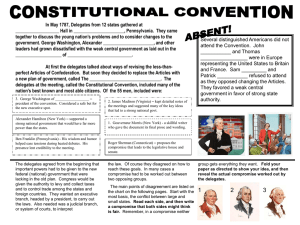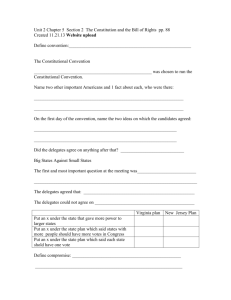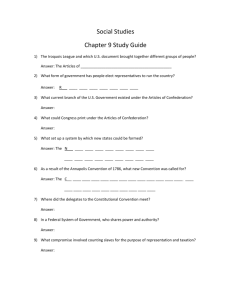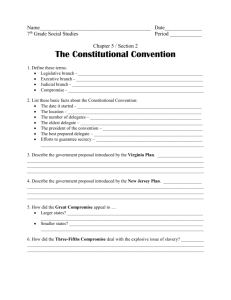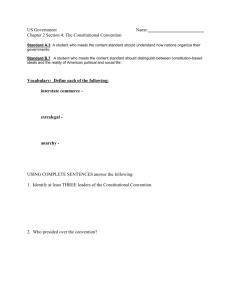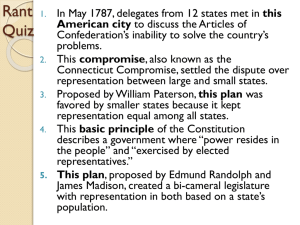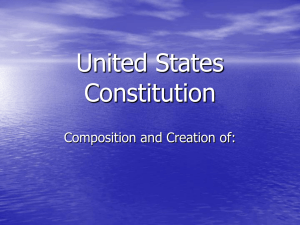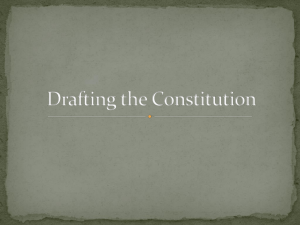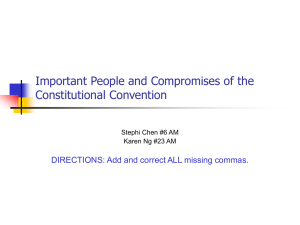The Great Compromise By: Aaron Daniel Period 5th Historical Essay
advertisement
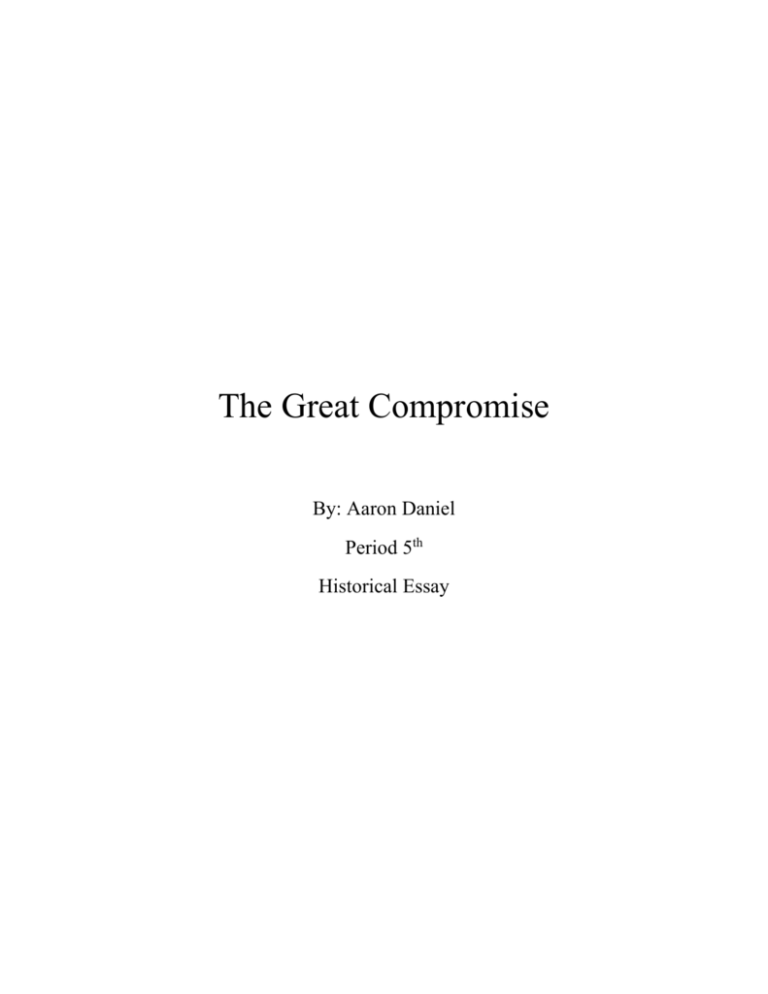
The Great Compromise By: Aaron Daniel Period 5th Historical Essay “Do you think the United States of America would ever be under control if it were not for the compromises?” In 1786, fifty five delegates from twelve of the thirteen states attended the Constitutional Convention. The delegates were there to make changes to the Articles of Confederation. They did not know that they would compromise to form a Constitution. James Madison made a plan that needed a three branch government (legislative, judicial, and executive. James Madison did that so we could have a separation of powers so no man could have too much authority. The system allowed each branch to check the other. It was like that so it would protect the citizens. “ Much of the controversy surrounding the plan centered on legislation.” The plan called for membership in the legistlature to be based on population. This favored the larger states. “The plan was referred to as the Virginia plan or the large state plan.” The small states disagreed so they formed their own plan . Some delegates came together and made a New Jersey Plan. This plan was for a unicameral legislature that had equal representation. It called for each state to have one representative. “This legislative branch would have the power to levy taxes, regulate trade, and appoint a plural executive.” It also called for a Supreme Court. “This plan favored small states in which would not receive much representation through the Virginia Plan.”They could not decide on a specific plan after the numerous proposals. “Roger Sherman resolved this dispute with the help of Ben Franklin when they proposed The Great Compromise.” The Compromise gave both of what they wanted. It was a bicameral legislature that had a house of Representatives and a Senate. “Population would determine representation in the House of Representatives and in the Senate, each state was guaranteed two representatives. “By July 16, the convention had already set the minimum age for senators at thirty and the term length at six years as opposed to twenty five House members, with two year terms.” “James Madison explained that these distinctions, based on the nature of the sentatorial trust, which requires greater extinct of information and stability of character, would allow the Senate to proceed with more coolness, with more system, and with more wisdom than the popularity elected branch.” The issue of representation threatened to destroy the seven week old convention. The issue of representation, however, threatened to destroy the seven-week-old convention. Delegates from the large states believed that because their states contributed proportionally more to the nation’s financial and defensive resources, they should enjoy proportionally greater representation in the Senate as well as in the House. Small-state delegates demanded, with comparable intensity, that all states be equally represented in both houses. When Sherman proposed the compromise, Benjamin Franklin agreed that each state should have an equal vote in the Senate in all matters—except those involving money http://www.senate.gov/artandhistory/history/minute/A_Great_Compromise. htm


